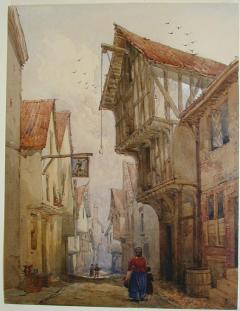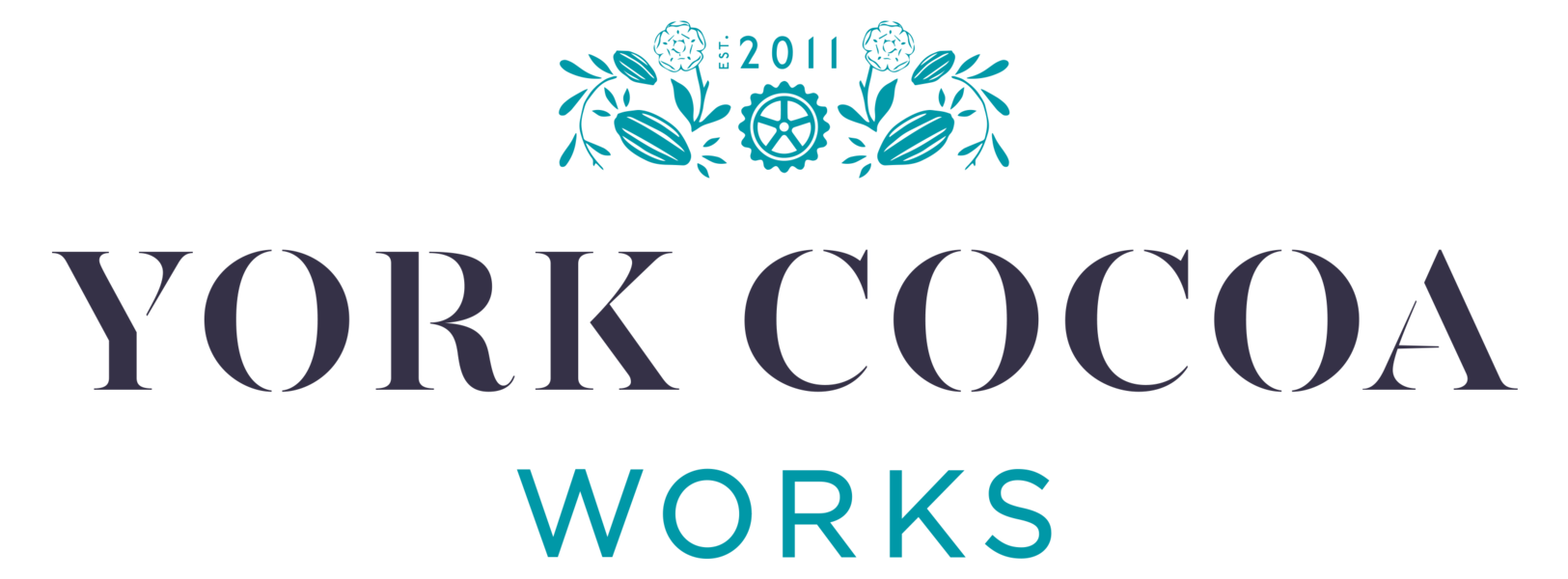Discovering our new neighbourhood!
With work well underway at 10 Castlegate we've been getting prepared by discovering our new neighbourhood. Turns out that much like Blake Street and Micklegate, Castlegate was a road of significant distinction in York! Not only was it the main route to the Castle, the road had a number of quite distinguished neighbours which was maybe a little incongruous to the Water Lanes that ran off Castlegate down to the River Ouse.
 As I have discovered the York Water Lanes contained some beautiful architectural features not much unlike what we see on the Shambles today, one of the most pictured streets in the world. However the lanes, which were slightly less imaginatively named Near Water Lane, Middle Water Lane and Far Water Lane, can still be seen today with Far Water Lane now known as Friargate, Near Water Lane has been widened to become an extension of Coppergate, while Middle Water Lane is now the perfect home for the bin store between the Italian on the corner and us at number 10. Sadly these unique elements of York's landscape were lost in the mid 1800's when the Victorian's decided the quite dingy and unsavoury environment of the lanes were best demolished and Clifford Street created, ploughing right through the medieval remains.
As I have discovered the York Water Lanes contained some beautiful architectural features not much unlike what we see on the Shambles today, one of the most pictured streets in the world. However the lanes, which were slightly less imaginatively named Near Water Lane, Middle Water Lane and Far Water Lane, can still be seen today with Far Water Lane now known as Friargate, Near Water Lane has been widened to become an extension of Coppergate, while Middle Water Lane is now the perfect home for the bin store between the Italian on the corner and us at number 10. Sadly these unique elements of York's landscape were lost in the mid 1800's when the Victorian's decided the quite dingy and unsavoury environment of the lanes were best demolished and Clifford Street created, ploughing right through the medieval remains.
I only go on about this, because knowing our geography of the city has also helped me to unearth more about our history.
For many years I have known of Mary Tuke, the plucky pioneering Quaker woman who started the business that would go on to become Rowntrees of York. Little else has been traced about Mary Tuke except that she had a long legal battle with the Merchant Adventurers of York who tried to have her closed down for rejecting their authority. Mary started her business on Walmgate in 1725, just next to the medieval church of St Margarets - now the Early Music Centre in York. At that time the Merchant Adventurers, whose charter to govern the landing and trading activity in the city had been granted by Queen Elizabeth I herself, were starting to lose their power in the city. Due to York's mercantile heritage anyone wanting to trade in York had to belong to a guild of their trade, to gain entry to the guild one would have to serve an apprenticeship usually of 7 years before becoming a Freeman of the city, they must then join the guild of their craft before opening their business. The guilds would run the city by creating their own council of Alderman and nominated guild members who would sit in the Guildhall. By 1725 the authority of the guilds were starting to dwindle, maybe that's why they persevered for 8 years to ensure that Mary didn't trade without becoming a member and adhering to their governing rules. In the end I believe they just gave her membership in order to not upset their authority too much.
Either way, in 1733 Mary married Henry and became Mary Frankland, she was eventually joined in business by her nephew who would take it on after her death. I can only assume Mary must have been quite successful in her grocery shop on Walmgate and felt the need to expand, for she bought a number of pockets of land and premises on the exclusive Castlegate in 1750. One piece of land is an area where you would now find the Hilton Hotel, once known as Postern Castle at the corner of Castlegate, this would become one of the first girl schools in York, another was the premises at the corner of Castlegate and Coppergate where you will now find the Nook, the other was the piece of land on the south side of Castlegate and to the west of the Far Water Lane - a little spot where Little House Cottage was located - the exact spot where our York Cocoa Works will be.
Mary died in 1752, passing the business and the properties she had acquired to her nephew William Tuke who would go on to run this business with his son Henry while making great contributions to mental health reform.
In 1784 - the Tuke business became one of only 5 businesses in England licensed to roast coffee by the crown, by the following year the Tuke's had turned their acquired coffee roasting skills and facilities to "Chocolate of their own manufacture from the best Cayenne and Caracca nuts".
A little more research and I've uncovered that Caracca nuts were considered the best of the cacaos sourced from the traders of Caraccas.
It's there in that little shop, and the roasting area at the back of the yard now occupied by the Blue Boar, where Henry Isaac Rowntree found his first job outside of the family business, training and eventually taking over the cocoa, chocolate and chicory department before buying it when the family decided to sell up in 1862, over 100 years after Mary first bought the premises.
The wonderful thing about being in York is we're surrounded by so much that has gone before. There is no limit to the inspiration that can be found, remembering that no challenge in business has not been faced by someone in the city at some point. Still the city continues and absorbs the stories of the people that become its custodians for a brief moment in time. I can so easily get lost in these stories, but to imagine that the argumentative and clearly fiercely independent Mary Frankland/Tuke would have seen a view not so different to the one we'll see, be it nearly 300 years later, is in someways quite comforting and as we face the next stage of preparing to put the finishing touches in place is most inspiring. But to know that when it first came to making chocolate in York, and in fact in England, it all started with the finest cacao available just 5 meters from where we will be revisiting the manufacturing process is something really exciting!
We'll certainly be sharing more of our research, recipes and discoveries about York's chocolate making traditions as we have the opportunity to. For now though we're looking forward to welcoming friends and supporters for a very sneak pre-view of our chocolate making facility - remember it's still a building site, we're sharing an opportunity to have an insight into our plans, what's in store and of course a taster of our chocolates so far!
We'd be delighted if you could join us Saturday 27th or Sunday 28th January at Castlegate followed by a special chocolate tasting at Blake Street of our recipes so far.
Book your place online at the link below:
https://www.eventbrite.co.uk/e/york-cocoa-works-mid-project-pre-view-tickets-41190269204
Next →
← Previous






